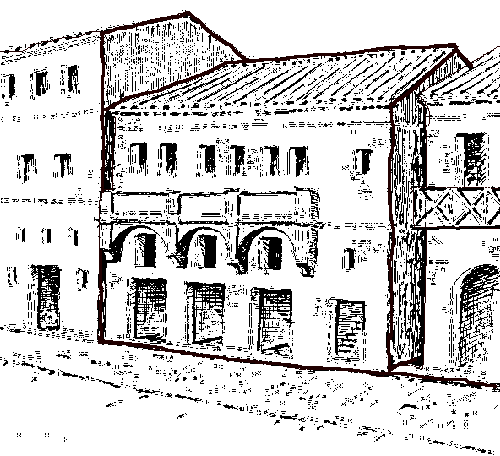

The town of Rome extended its sphere from the surrounding plain in the 6th century BC to control Italy, and the western and eastern Mediterranean by the end of the first millennium. Augustus, the first emperor, inaugurated two centuries of relative peace and prosperity, within borders patrolled by 300,000 soldiers.
The Roman Empire formed a huge territory using a single currency, with minimal customs barriers, no frontiers as such, and little piracy, served by a network of good roads and safe harbours. Movements of the army and its followers to defend borders, build towns, farm and mine created distant markets for Mediterranean products: Britain for example imported Mediterranean oil and wine in quantity.
Luxury goods from the East had long reached the eastern Mediterranean via the Silk Road. Now large and wealthy urban centres grew up in the eastern Mediterranean as trade expanded, supplying the rest of the empire.
Initially Italian manufactures were exported to the provinces. Gradually manufacturing and mass production developed in the provinces themselves. By the end of the 2nd century AD most provinces were largely self-sufficient in mass-produced items. But some outposts continued to import some manufactures: in Britain for example glass was imported from the Rhineland throughout the Roman period. But Britain was one of the few areas of the empire rich in lead and tin, and these were exploited and exported.
The economy of the empire, especially of the less urbanised periphery, was essentially agricultural. Throughout the Roman period free "Roman" citizens aspired to own land and farm. The commercial classes, often consisting of freed men and women, were neither wealthy nor prominent. Manual labour (in mines, on farms, in large households) was often performed by slaves from outlying areas who later bought their freedom.
Supplies to Rome itself, a city of a million people, many only marginally employed, were imported from all over the empire. Britain supplied wild animals like bears and Irish wolfhounds for the cruel games in the Circus laid on by the emperors for a population on welfare.
© 1998 Oxfordshire Museum Service, Setúbal Museums and the Benaki Museum